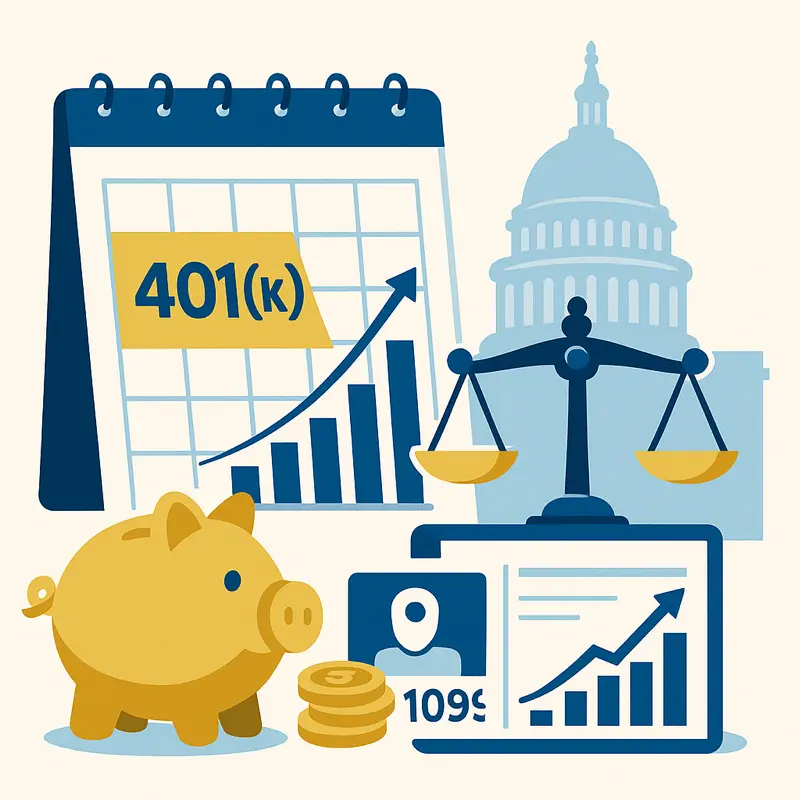Retirement savings policy continues to evolve as lawmakers address the challenges of an aging workforce and rising life expectancy. For 2025, several changes in retirement accounts like 401(k)s and IRAs are worth noting for both employers and employees.
Key Policy Updates
- Increased Contribution Limits: The IRS has raised contribution caps for both 401(k) and IRA accounts, allowing workers to save more on a tax-advantaged basis.
- Expanded Auto-Enrollment: Under provisions of the SECURE 2.0 Act, many new retirement plans are now required to automatically enroll employees, with the option to opt out.
- Catch-Up Contributions: Workers over 50 can contribute additional amounts, and these limits are adjusted for inflation. Some new rules require higher earners to make catch-up contributions on a Roth basis, changing the tax treatment.
What It Means for Employers
Businesses offering retirement plans will need to update payroll and HR systems to comply with auto-enrollment and contribution changes. While this adds administrative responsibility, offering competitive retirement benefits can help with employee retention and satisfaction.
What It Means for Workers
For employees, these changes increase opportunities to build savings, but also add complexity. Workers should review whether Roth or traditional contributions make more sense for their situation and take advantage of employer matching contributions whenever possible.
Broader Impact
Retirement legislation reflects a larger trend: shifting more responsibility for long-term financial security onto individuals, with employers acting as facilitators. Policymakers aim to reduce the risk of Americans entering retirement without adequate savings, a concern that has grown as Social Security faces funding pressures.
Final Thought
Staying informed on retirement account rules can pay off significantly. A few percentage points of additional savings each year, especially when tax-advantaged, can compound into meaningful financial security decades down the line.


